- Risk의 정의
- Conceptual definitions : risk and risk assessment
- From Gubbio to Monte Carlo
- The Risk Matrix
* Applying the risk matrix in system design
* The use of the risk matrix in operational or executive decision-making.
- The severity and likelihood criteria table
- The use of the S/L table in design or process-based risk assessment
- Risk assessment in operational observations
- Calculating the likelihood of a past event that actually happened in the real world
- Estimating the effectiveness of remaining controls
* What exactly are we assessing when we assess risk? -> risk를 평가할 때 정확히 평가해야 하는 것은 무엇인가?
* Since an assessment is a judgment of value or scale, against what standard are we comparing whatever it is that we are assessing? -> 평가가 필요할 때, 어떤 기준을 놓고 비교를 하여야 하나?
* What qualifications must one have in order to make an assessment? -> 평가를 하기 위해서 어떤 조건이 반드시 있어야 하나?
* How repeatable are our assessments - will two qualified people make the same assessment of whatever it is that we are assessing? -> 얼마나 반복적으로 평가를 해야하나 - 두 명의 자격을 갖춘 사람들이 평가가 이뤄지는 어떤 것이든지 같은 평가를 할 것인가?
* Do our assessments have meaning, and what do we mean by that? -> 이루어진 평가가 의미를 지니고 있는지, 그리고 그것으로 어떤 의미를 가지는가?
* If we build our risk assessments process to be relatively simple to use, will it produce anything of worth? Alternatively, if we build a comprehensive and complete risk assessment model, will it be so complex as to be impractical, and therefore worthless in a different way? -> 만약 우리가 사용하기에 간단한 위험평가를 만든다면 이것은 가치를 생산해 낼 수 있나? 반대로 좀 더 포괄적이고 완벽한 위험평가 모델을 만든다면 이것은 너무 복잡해서 실용성이 없지는 않을까?
이와 같은 여러 가지 문제에 부딪히게 된다. 이처럼 SMS는 이제 좀 더 정교하고 명확하게 바뀌어야 하는데 그렇게 되려면 이론적인 측면, 통계적 측면의 타당함, 측정의 반복과 관찰, 기타 등등이 기본적으로 수반되어 학문적으로 변화되어야 할 것이다.
이제 본격적으로 Risk에 대해서 알아 볼 것이다.
먼저 Risk의 정의이다.
Risk의 정의는 ICAO와 FAA 정의로 구분된다.

- 오늘 본 자료가 없습니다.
- [자원봉사론] 작성자 거주지역의 자원봉사활동에 대한 현재 현황 등을 파악하고 분석 자원봉사자 모집의 활성화 방안
- 아동 복지에서 아동 학대의 대응방안에 대해서 작성 제출하시오
- 청소년 개별상담의 이론과 기법으로 인간중심 상담, 형태주의 상담, 현실치료 가운데 본인이 선호하는 상담접근 방법을 한가지 선택하여 주요개념 및 상담과정과 기술을 정리하시오
- 4주차 2차시에서 청소년기의 발달적 특성 중 자아정체감에 대하여 학습하였습니다 청소년기의 발달에서 반드시 획득하여야 하는 개념이 자아정체감임에도 불구하고 우리 사회에서는 학업과 같은 사회문화적 요소에 의하여 자아정체감 확립될 기회가 부재하여 청소년들이 어려움을 경험하고 있습니다
- 유엔아동권리협약의 4대원칙과 4대권리에 대해 정리하고 실제 아동권리가 보장되고 있는 경우와 침해되는 사례들을 들어 견해를 쓰세요
해당 정보 및 게시물의 저작권과 기타 법적 책임은 자료 등록자에게 있습니다. 위 정보 및 게시물 내용의 불법적 이용,무단 전재·배포는 금지되어 있습니다. 저작권침해, 명예훼손 등 분쟁요소 발견 시 고객센터에 신고해 주시기 바랍니다.



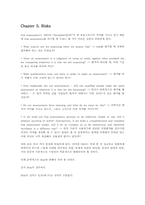
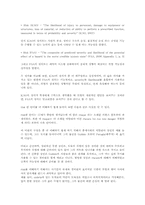

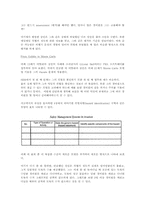
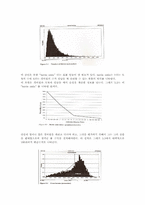
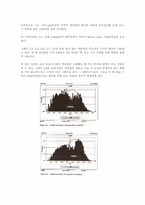
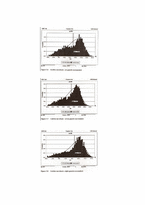

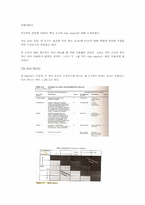
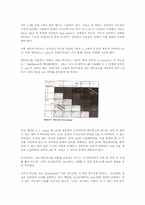

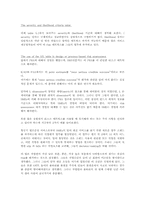
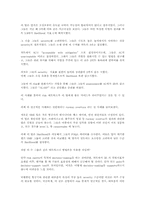
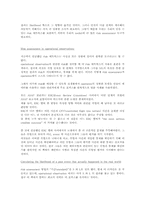
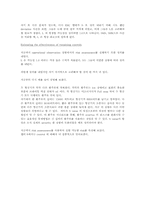
 분야
분야

